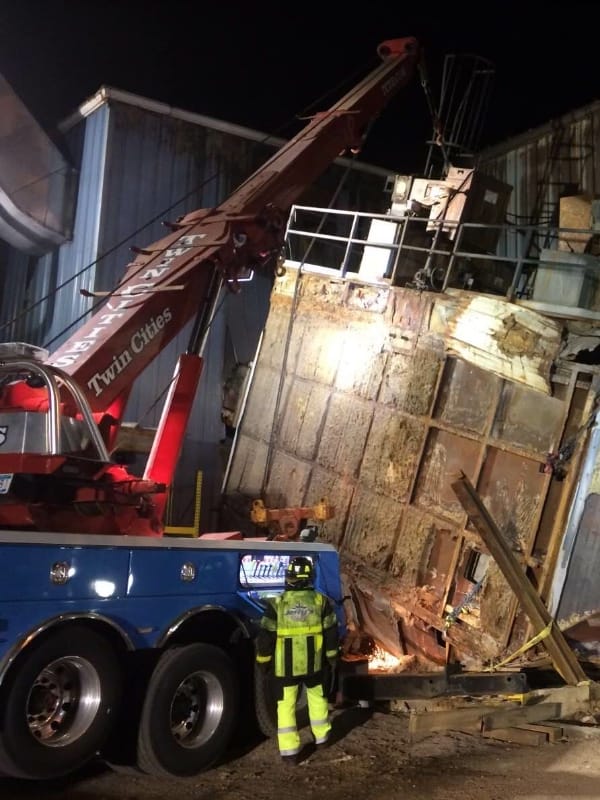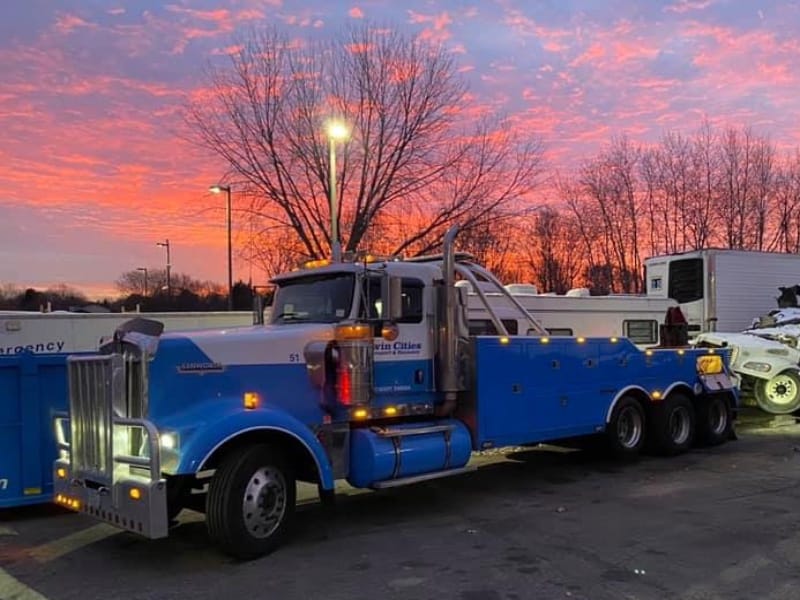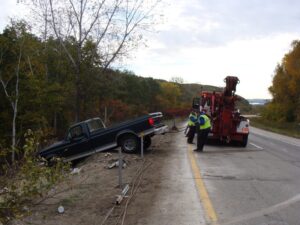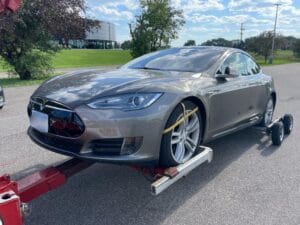Lights Out, Hazards Up
The clock hits midnight and the calls start coming in. A stalled sedan on Route 65. A jackknifed trailer just outside Bethel. A van with a dead battery tucked off a dark county road. We’ve been through enough of these night shifts to know that Bethel emergency towing is a different kind of job once the sun goes down.
Night work brings real risks. Visibility shrinks. Reaction time drops. And traffic—though lighter—is often more dangerous. Drivers are tired or worse, impaired. Our crew steps into this environment with sharp focus and a strategy that’s been tested by every midnight pull and roadside hookup.

Limited Vision, Higher Stakes
Once daylight disappears, everything about towing becomes darker and harder. A stretch of road that’s clear by day can feel unfamiliar in the dark. Identifying fluids on pavement, spotting glass shards, or even seeing damage to a vehicle becomes a challenge. When we respond to a Bethel emergency towing call after dark, we have to create our own light and find ways to stay visible.
We load up with:
- Flood lights mounted on our trucks
- Reflective gear to mark our position
- Cones and flares to carve out a safe work zone
Nothing’s taken for granted. Every step gets a double check, and every second counts.
Fatigue Doesn’t Care About Deadlines
Working through the night wears on everyone. It slows down reflexes and shortens patience. And we know we’re not the only ones affected. That’s what makes Bethel emergency towing especially risky after dark: not just about our condition, but everyone else on the road too. Late-night drivers are tired, sometimes distracted, and occasionally impaired. That’s why we stay alert and take breaks when needed, and stay in constant contact with dispatch to monitor every move.
The Silence Can Be Misleading
There’s something eerie about a roadside call at 2 a.m. The road seems empty, quiet. But that silence hides danger.
Even though traffic thins out, we face more aggressive driving patterns. People speed more at night. There’s less enforcement, fewer witnesses. When we’re on a Bethel emergency towing call during these hours, we don’t let the quiet lull us into relaxing.
We always:
- Set our trucks at a protective angle
- Use our rig as a physical barrier when needed
- Keep spotters watching for oncoming traffic
It’s this kind of calculated awareness that keeps both our crew and the customer safe.
Equipment Must Be Flawless
At night, there’s no room for second chances. A misstep in daylight might mean a delay. A misstep in the dark can lead to a serious accident.
That’s why we prep our trucks with extra care before night shifts. Cables, straps, lighting, winches… they all get inspected before we roll out. We need to know every button works, every hook holds. When we get a Bethel emergency towing request after midnight, we don’t have the luxury of trial and error.

Twin Cities Towing Is Built for Bethel Emergency Towing. Even at Night
We’ve worked enough midnight shifts to know what matters most: being prepared, staying calm, and showing up fast. Bethel emergency towing calls don’t care about the hour, the weather, or the difficulty. And that’s fine. Because we do.
At Twin Cities Towing, we don’t wait for daylight. We respond when the call comes — night or day — and we bring the experience, gear, and grit it takes to get the job done right. If you’re out there in the dark and need help, know this: we’re out here too, and we’re ready.



